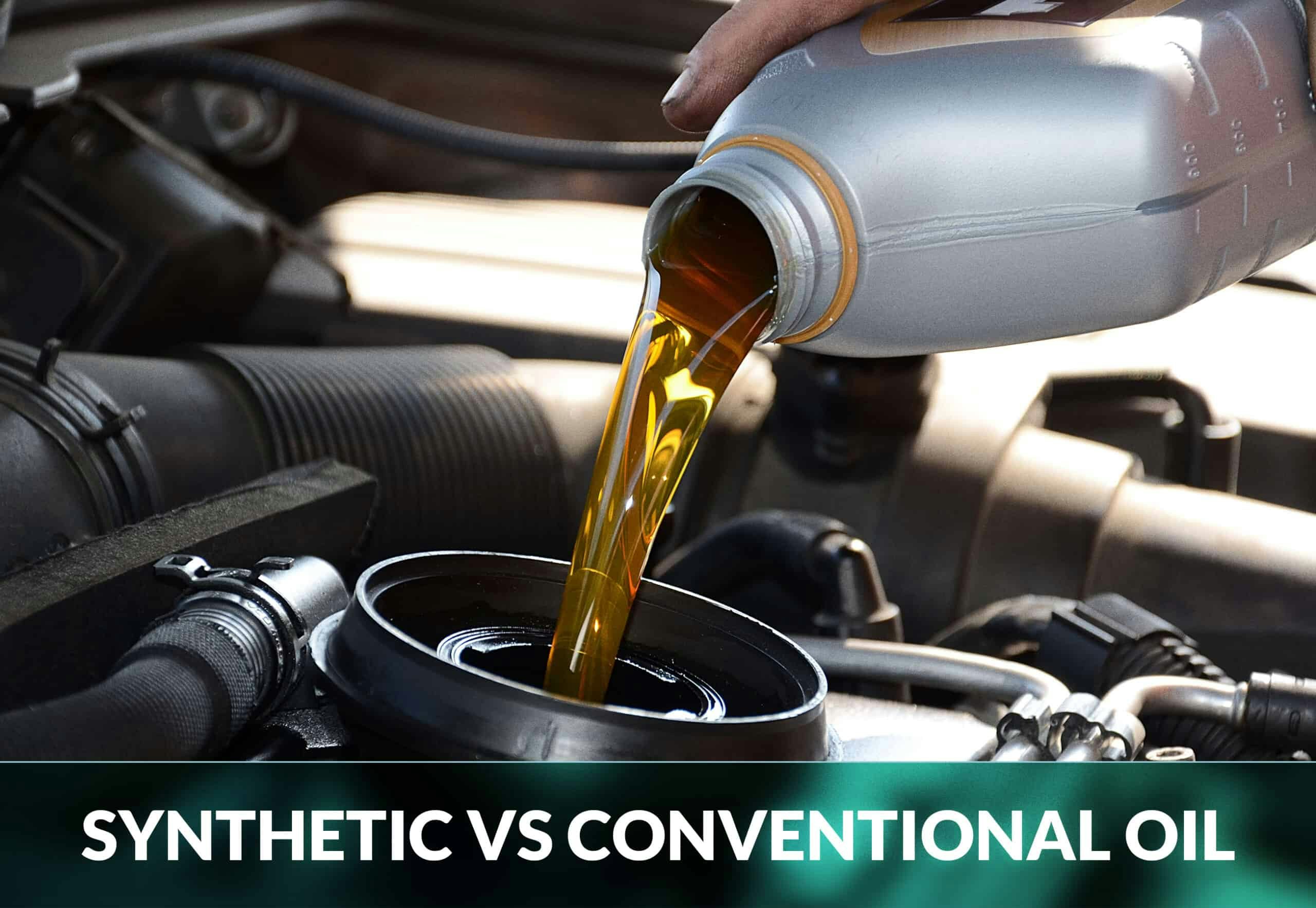
Synthetic Oil vs Conventional Oil – What’s the Difference and Which Should You Choose?
It’s been a long time since car manufacturers recommended that you change your motor oil every 3,000 miles. Today, modern cars have advanced past ignition points, carburetor adjustments, and even needing to add water to your battery.
Modern motor oils are advanced too. Although uncommon, some even recommend a changing interval of up to 25,000 miles. But, there’s a catch. You need to buy a synthetic motor oil if you even start to think about driving with it for as long as 25,000 miles. Conventional motor oils simply don’t pass the muster.
So, which should you use? In this article, we’ll explain for you the differences and hope to help you to make the right decision between Synthetic vs. Conventional Motor Oil.
What is Conventional Oil?
Conventional motor oil is designed to be effective in car engines, but only if it is replaced often and not put under too much stress. It is a fossil fuel naturally found in nature in tar sands and underground reservoirs. The oil is then refined and treated to create conventional motor oil for your car.
What is Synthetic Oil?
Synthetic motor oil consists of certain chemical components that are man-made. It is created by modern technology using pure, uniform chemical compounds that contain the best properties of conventional oil.
Most synthetic oils have their origin in crude oil and other fossil fuels.
Synthetic Oil vs. Conventional Oil
Fifty years ago, choosing a motor oil boiled down to finding a brand you trusted and paying a price that seemed reasonable. That would have bought you a “conventional” motor oil. Synthetic oils, however, were much harder to find. Most car owners didn’t even know they existed.
So what’s the difference?
1. Better Protection
Synthetic motor oil does cost more, but it lasts longer and offers more protection for your engine – it resists breakdown and flows better in cold weather.
When the temperature drops, conventional motor oil thickens and flows slower. This leaves parts of your engine unprotected. Over time, wear will take its toll, and you’ll be in the shop needing an expensive repair. It will also waste energy requiring the engine to work harder and use more fuel. This problem is averted when you use synthetic oil because it flows readily all the time, even at start-up.
Conventional oil also contains waxes that thicken with cold temperatures. Synthetic oil, however, doesn’t contain wax, so it remains fluid and can reach vital metal components faster. Those parts don’t contact and wear against each other, so your engine has immediate protection.
Furthermore, in older engines, synthetic motor oil is much better at preventing sludge build-up that can block oil passageways and destroy the engine.
2. The Cost Downside
The downside is that synthetic oil costs much more than conventional oil. However, synthetic oil can help prolong the life of your car’s engine. This is especially true if you make a lot of short trips. When you only drive a short distance, conventional oil may not have enough time to get hot enough to burn off moisture and impurities. These accumulate and eventually cause the oil to break down prematurely.
Car owners have appreciated the accessibility and affordability of conventional motor oil for over a century. Conventional oil easily will cost less than synthetic oil, but it has nowhere near the benefits.
3. Hot or Cold Weather Makes a Difference
If you live where there are overly hot summers or colder than average winters, you should be using synthetic motor oil.
- In hot weather, conventional oil breaks down much faster and will need to be replaced sooner.
- In cold weather, synthetic oil flows more smoothly through your engine and provides all the protection it needs all the time.
4. The Environment
Conventional oil won’t last as long and it is less friendly to the environment. Yes, it will provide the engine in your car with the protection it needs, as long as you do not drive it under harsh conditions.
Moreover, having to change the oil more often can be an inconvenience and even a deciding factor.
Follow Manufacturer Guidelines
With both synthetic and conventional oils, car owners must remember to change their oil at the recommended time intervals for engine protection.
Many car owners are concerned that switching from conventional to synthetic oil may cause damage to their engine. This is not the case. As long as your car’s manual doesn’t specifically state to not use synthetic oil, there is no reason you should not use it.
Always consult your owner’s manual to see whether synthetic motor oil is recommended for your car. Also, be sure to follow the manufacturer’s recommendations if they suggest you replace your car’s oil more often because of special driving circumstances.
Making the Decision
When deciding whether to use synthetic motor oil, consider how you use your car and how much protection it needs. How much trouble is it to change your oil more often, and how much does an oil change cost?
You may also want to consider the environmental effects of using conventional motor oil as it is less eco-friendly.
A Middle-Ground: Semi-Synthetic Oil
Semi-synthetic oils have also become available to today’s car owners to partially offset the expense of fully synthetic oil. Semi-synthetic oil is made from blending conventional and synthetic oil to provide some of the advantages of synthetic oil but at a price closer to that of conventional oil.

600+ exam-like questions and practice tests
Easy summarized DMV handbook
America’s #1 driver’s ed app with a 95.8% pass rate
Recommended articles
Ace your DMV test, guaranteed
Want to Be the Top School in Your Area?
- Simple & automated admin
- More time for teaching
- #1 learning materials for students


